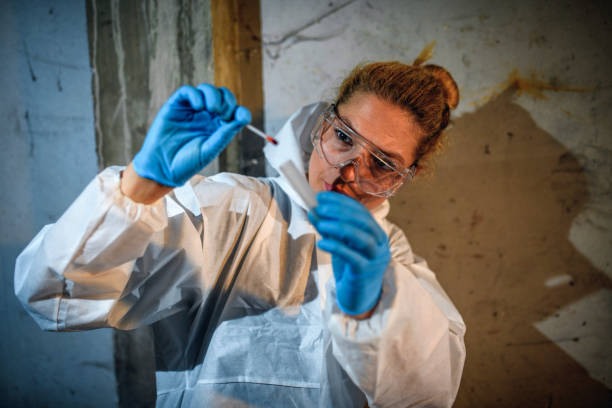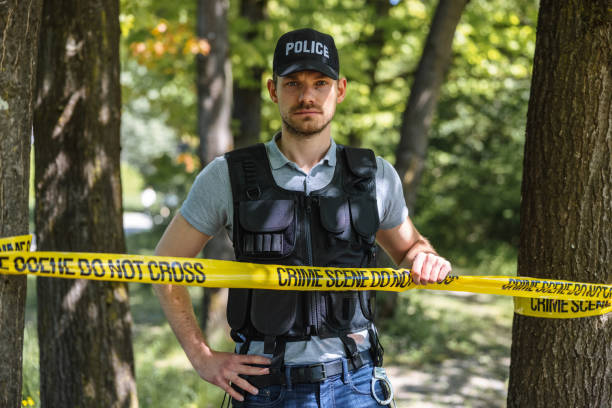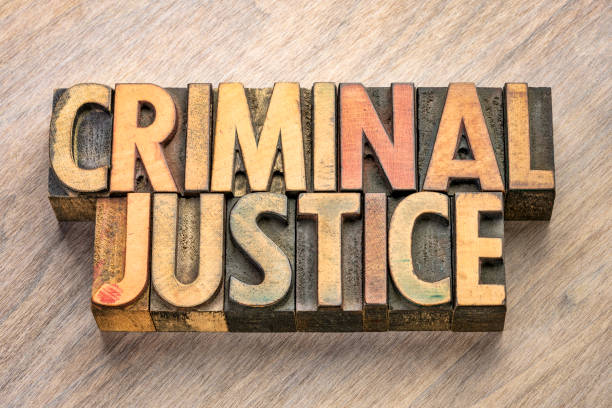The Best Criminal Justice Careers!
Criminal justice careers are challenging, but the proper individual will find them gratifying. Employment prospects in the criminal justice system can be found in law enforcement, the legal system, and corrections.
Criminal justice professionals are employed nationwide in police departments, federal law enforcement organizations, jails, and courts. Additionally, they patrol the streets and ensure public safety.
Jobs in criminal justice may involve specific training in fields such as investigation, forensics, psychology, or finance, depending on the role.
Our list of the best Best Criminal Justice Careers examines common job duties, salary potential, and educational prerequisites for a variety of criminal justice jobs. We also provide a salary ranking for each profession, from top to lowest.
List of the Best Criminal Justice Careers
The following is a list of the Best Criminal Justice Careers:
1. Officer of Information Security
Officers of information security protect an organization’s data by executing cybersecurity protocols. This Best Criminal Justice Careers install and administer security hardware devices and software programs to prevent unwanted access to sensitive data. Additionally, information security officials instruct users on how to access safe data.
When data breaches occur, investigations are conducted and system enhancements are implemented to prevent future cyberattacks. Bachelor’s degree in cybersecurity or a related discipline, such as criminal justice, is required.
Median Salary
$92,482
2. Prison Warden

In prisons, prison wardens are the most senior correctional officers. They execute administrative and supervisory responsibilities, such as generating schedules, managing budgets, and establishing safety-promoting rules. Additionally, prison wardens make choices regarding recruiting and training.
Additionally, this Best Criminal Justice Careers serve as prison commanders while delegating responsibility to correctional personnel. Typically, prison wardens have a bachelor’s degree in criminal justice and several years of corrections experience.
Median Salary
$88,264
3. Homicide Detective
Detectives specializing in homicide investigate crimes that result in death. They gather evidence at the scene of the crime, identify probable suspects based on analysis of the evidence and interviews, and document their investigations in written reports.
In homicide investigations, homicide detectives also work closely with district attorneys to file criminal charges. Jobs in law enforcement, such as homicide detective, often require a bachelor’s degree in criminal justice, criminology, or a similar discipline, as well as several years of police officer experience.
Median Salary
$74,737
4. Forensic Psychologist
Using their expertise of psychology, forensic psychologists investigate crimes and evaluate criminals. They collaborate with law enforcement to develop criminal profiles, assess the courtroom readiness of suspects, and perform psychological research.
Additionally, This Best Criminal Justice Careers may conduct interviews with convicts to better comprehend their motivations, diagnose mental health disorders, and draft reports for judges to utilize in determining sentences. Typically, careers in forensic psychology need a doctorate in counseling or psychology as well as a license provided by the state.
Median Salary
$69,453
5. Investigative Accountant

forensic accountants discover and investigate fraudulent acts. They work in insurance, banking, and law enforcement, where they analyze financial evidence and testify as experts in court. Using analytical software to detect fraud, forensic accountants who cooperate with police departments unearth white-collar crimes such as embezzlement, money laundering, and hidden assets.
The majority of occupations require a bachelor’s or master’s degree in accounting or a field closely linked to accounting, such as forensic accounting, finance, or criminal justice.
Median Salary
$68,347
6. FBI Agent
For the Federal Bureau of Investigations, FBI agents conduct investigations. They gather evidence, conduct witness interviews, and identify suspects. FBI agents frequently collaborate with local law enforcement officers to apprehend and imprison suspects.
They work in field offices across the nation and at regional or national headquarters of the FBI. Bachelor’s degrees in criminal justice, criminology, or a similar discipline are required for careers in federal law enforcement. Additionally, agents must complete specific training.However, it is one the Best Criminal Justice Careers.
Median Salary
$65,383
7. Police Officer
Detectives of the police investigate serious crimes such as theft, assault, drug offenses, and murder. This Best Criminal Justice Careers examine evidence, conduct interviews with victims and witnesses, and construct cases against suspects. Detectives document their investigations through the preparation of reports and the organization of evidence.
While conducting investigations, they work closely with district attorneys and judges to verify compliance with legal standards. Typically, law enforcement positions such as police detective require a bachelor’s degree in criminal justice or a closely related discipline in addition to professional experience.
Median Salary
$63,044
8. Expert in Computer Forensics
Experts in computer forensics retrieve information and files from computers, smartphones, and other digital devices. They rely on software applications and cybersecurity approaches to restore lost or corrupted data and files.
As one of the Best Criminal Justice Careers, Computer forensic specialists employed by law enforcement investigate criminal activity, compile reports based on their findings, and may be called to testify in court. Frequently, computer forensic experts hold a bachelor’s degree in computer science or criminal justice.
Median Salary
$62,605
9. Criminal Investigator

To investigate criminal matters, criminal investigators gather and analyse evidence. This Best Criminal Justice Careers investigate crime scenes to gather evidence, collaborate with forensic specialists to interpret crime scene evidence, and conduct interviews with victims and witnesses to identify probable suspects.
In order to solve crimes, criminal investigators may also conduct surveillance or go undercover. Also, they testify in court. Typically, criminal investigators hold a bachelor’s degree in criminal justice or a related field.
10. Fraud Investigator
Investigators of fraud examine data to find instances of financial wrongdoing. They evaluate financial information and discover fraud in the accounting, insurance, and law enforcement fields. In fraud investigations, fraud investigators also conduct interviews with witnesses and suspects to gather evidence.
They may also give court testimony. Numerous of these individuals have prior experience in police enforcement or private investigation as well as a bachelor’s degree in finance, accounting, or a related discipline.
Median Salary
$60,805
11. Forensic Expert
Forensic scientists study evidence in laboratories in order to solve crimes. They gather evidence, examine crime scenes, and develop conclusions based on their findings. In court, forensic scientists testify regarding their findings and the analysis procedure.
As forensics experts, they may also instruct law enforcement officials on the most effective practices at crime sites. Typically, a bachelor’s degree is required for forensic positions such as forensic scientist, while some organizations demand a master’s degree.
12.Criminal Entomologist
Using their expertise of insects, forensic entomologists assist law enforcement personnel with criminal investigations. They examine insects on postmortem bodies to discover factors such as the moment of death. Using bug evidence, forensic entomologists can also pinpoint where a person died, link victims and suspects, and gather samples to solve homicides.
This Best Criminal Justice Careers also create reports and testify in court regarding their findings. Jobs in forensics, such as forensic entomologist, require a bachelor’s degree in biology, entomology, and criminal law.
13. Criminalistic Chemist
By conducting laboratory tests, forensic chemists help coroners and medical examiners discover the reasons of death. They conduct toxicological testing, evaluate chemical data, and examine evidence. Additionally, forensic chemists create methods to isolate narcotics from samples.
As experts in chemistry and toxicology, forensic chemists must be familiar with a variety of devices for analyzing samples. Bachelor’s or master’s degrees in chemistry or a closely related subject are required for employment as a forensic scientist.
Median Salary
$55,002
14. DNA Forensic Analyst

The specialty of forensic DNA analyzers is conducting laboratory analysis of DNA samples. They collaborate with law enforcement and crime scene investigators to examine DNA samples from crime scenes. Spectrometers are used by forensic DNA analysts to isolate genetic material when conducting DNA analyses.
After conducting an analysis, forensic DNA scientists can utilize the data to establish the suspect’s genetic profile. Additionally, they create reports and testify in court regarding their findings. Typically, a bachelor’s degree is required for forensic positions such as DNA analyst.
15. Private Investigator
As one of the Best Criminal Justice Careers, Private investigators conduct investigations using surveillance, background checks, and document examination. They aid clients in recovering lost property, locating missing individuals, and researching financial fraud. Depending on the sort of investigation, private investigators may work in the field or an office.
Their responsibilities may include of evaluating financial documents, locating witnesses, and serving legal paperwork. Some private investigators have a bachelor’s degree in criminal justice, although the educational requirements vary.
16. Police Officer
State troopers are state-level law enforcement officers. They undertake duties comparable to those of police officers, such as investigating illegal activity. Troopers of the state police apprehend and interrogate criminals, interview witnesses and victims, and testify in criminal cases.
In addition, they guard crime sites, aid during natural disasters, and serve warrants. Typically, jobs in law enforcement, such as state trooper, require a bachelor’s degree in law enforcement or criminal justice.
Median Salary
$53,920
17. Mediator
Mediators resolve legal issues by serving as a neutral third party to assist both parties in reaching an agreement. Mediators assist parties in achieving a nonlitigious agreement in order to avoid litigation.
During the mediation process, mediators review papers and conduct interviews with both parties to gain an understanding of the situation. Mediators work with both parties to reach a confidential agreement. They normally possess a bachelor’s degree, and many mediators come from legal backgrounds.It is also regarded as one of the Best Criminal Justice Careers.
Median Salary
$51,730
18. Officer of the law
Police personnel safeguard the people and enforce local laws. They monitor public threats, conduct neighborhood patrols to dissuade criminal activity, and respond to complaints and emergency calls. Interviewing victims and witnesses, collecting evidence at crime sites, and arresting suspects are additional duties of police personnel.
During a trial, police officers provide testimony regarding investigations and acquired evidence. Occasionally, jobs in law enforcement, such as police officer, require a bachelor’s degree in criminal justice.
Median Salary
$51,691
19. Official Court Reporter
Court reporters transcribe court hearings in writing. These transcripts serve as the official trial records. Court reporters record the testimony of witnesses, attorneys, and judges during a trial. During the trial, they may also read chunks of transcripts.
Some court reporters write written transcripts using stenotype machines, while others use recordings or software applications. Typically, court reporters obtain specialized training through a vocational or technical program.
Median Salary
$51,087
20. Paralegal

Attorneys are assisted by paralegals who provide legal support services. They file legal documents such as motions, conduct client interviews, and edit legal documents. Additionally, paralegals accompany attorneys to court, edit briefs, and oversee junior paralegals. To fulfill their responsibilities, they must possess strong written communication skills, legal terminology knowledge, and familiarity with the legal system. Some employers prefer individuals with a bachelor’s degree.
Median Salary
$48,179
FAQs On Best Criminal Justice Careers
Is criminology or criminal justice better?
Both criminology and criminal justice are important fields, but they serve different purposes. If students want to work in research or policy, they should study criminology. If learners want to work in law enforcement or the legal system, they should study criminal justice.
What degree does the FBI look for?
All FBI agents must hold a bachelor's degree at minimum, and many possess a master's degree or higher. FBI agents often earn degrees in fields such as criminal justice or political science, though the Bureau does not maintain any specific academic major requirements for applicants.
Is it worth studying criminal justice?
With the prospect of advanced career opportunities, valuable and versatile skill sets, and a competitive edge in the field, the answer is yes. Obtaining a criminal justice education can position you for long-term success and upward mobility in the field.
Why criminal justice is a good career?
A career in criminal justice is a great way to give back to your community. The field is full of jobs that help others; from law enforcement to working in the court system, you're protecting people from criminal activity, helping crime victims and ensuring justice for them and society.
Is studying criminology hard?
The academic training of a criminologist is rigorous, according to "The Princeton Review." Entry-level criminologist jobs require a minimum of a bachelor's degree, usually in sociology, psychology or criminology.

